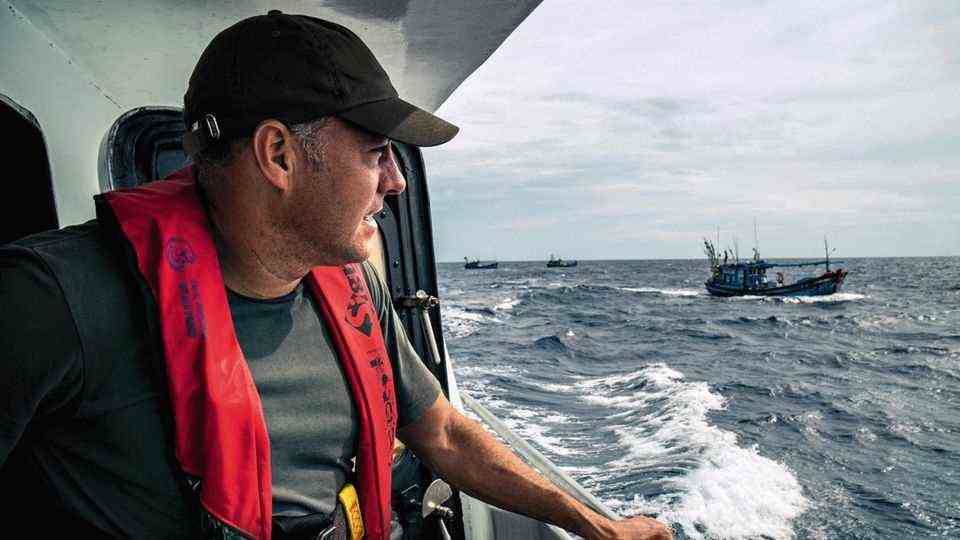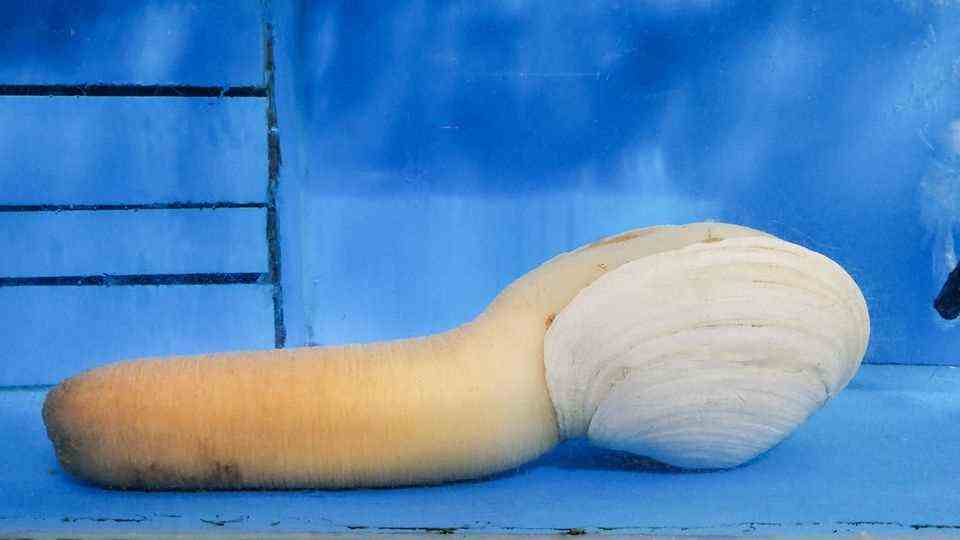Fishing
New catch quotas for herring and cod: is Baltic fishing about to end?
Freshly caught herrings from the Baltic Sea.
© Jens Büttner / Picture Alliance
The EU Council of Ministers has set an exclamation mark in the fight against overfishing in the Baltic Sea. In 2022, significantly less fish will be allowed to be taken out of the sea. The Baltic fishermen fear for their existence.
It is a tough blow for the Baltic fishermen. In the western Baltic Sea they will not be allowed to target cod and far less herring from the sea in the future. Both types of fish are essential for fishermen and are considered “bread fish”. But stocks are not doing well, that is a well-known fact. Now the EU countries have agreed on a drastic step. The catch of cod should only be possible as bycatch of just under 490 tonnes and only 788 tonnes of herring may be fished, according to a communication from the EU countries. Targeted herring fishing with trawls is prohibited.
This year, 1,600 tonnes of western herring and 4,000 tonnes of western cod can still be caught across the EU. The background to the new rules are worrying developments in many fish stocks in the Baltic Sea. In a communication, the Federal Ministry of Agriculture indicated that it did not agree to the decision. Agriculture Minister Julia Klöckner (CDU) had unsuccessfully demanded that a decision on western herring should be made in December because this stock is migrating to more northerly waters and other countries are also fishing for it.
A “disaster” for German fisheries
Negotiations with these countries are scheduled for December. Klöckner fears that a strict EU decision in favor of the Baltic Sea could lead other countries to high catches in other seas. The director of the Thünen Institute, Christopher Zimmermann, also expects this. The consequence will be that the herring stock will not have a chance to recover. The German Fisheries Association, nature conservationists and the ministry are largely in agreement on the effects on German Baltic Sea fisheries: They are about to end, said the Federal Managing Director of Deutsche Umwelthilfe (DUH), Sascha Müller-Kraenner.
“The bottom line is that for the German fishery, it has to be said quite clearly, a disaster,” said fisheries association spokesman Claus Ubl of the German press agency. Cod and herring are the “bread fish”. “And if these are shortened to such an extent that you can no longer fish them specifically, then everyone can calculate that hardly any fisherman can survive there,” said Ubl. And “if I don’t catch any fish, I can no longer hold structures such as cold stores, ice machines and other things – and once they’re gone, they’re gone.” Increasing the quotas for plaice and sprat will help some fishermen survive.
Against the collapse of the ecosystem
Klöckner spoke of “the most massive cuts” for the fishing industry. She announced that she would campaign for financial support for the fishery. The federal government wants to sound out with the federal states whether further “scrapping measures” are necessary. Environmental protection organizations reacted with mixed feelings to the result: “We don’t have long to prevent a complete collapse of the ecosystem in the Baltic Sea,” said BUND chairman Olaf Bandt. But a step has been taken in the right direction. In addition to excessive catches in recent years, climate change also has a negative impact on population development, emphasized the MSC organization, which is committed to sustainable fishing.
The EU countries are following the EU Commission’s proposal for herring; for western cod, the agreement exceeds the proposal of the Brussels authorities by around 165 tonnes. For Germany this means that 435 tons of western herring and 104 tons of western cod can be caught. The DUH criticizes that the decision falls short of the Commission’s proposals. Numerous environmental protection organizations have been criticizing excessive catches for years. Greenpeace marine biologist Thilo Maack spoke of the fact that the “emergency stop” that has now been decided will come too late and that the Baltic Sea fisheries will fall into the abyss with their eyesight, because the EU countries have ignored the warnings from science and environmentalists for years.

The agreement on herring also includes an exemption for fishing boats under twelve meters, which may continue to fish specifically for herring with “passive fishing gear”, such as gill nets, as a spokeswoman for the Federal Ministry of Agriculture confirmed.
But there are not only restrictions on professional fishermen, hobby anglers are also affected: outside of the closed season, they are only allowed to catch one cod and one salmon per person per day. “The fishing ban should have also applied to angling,” said Maack. It is difficult to control whether everyone is sticking to the limit.



